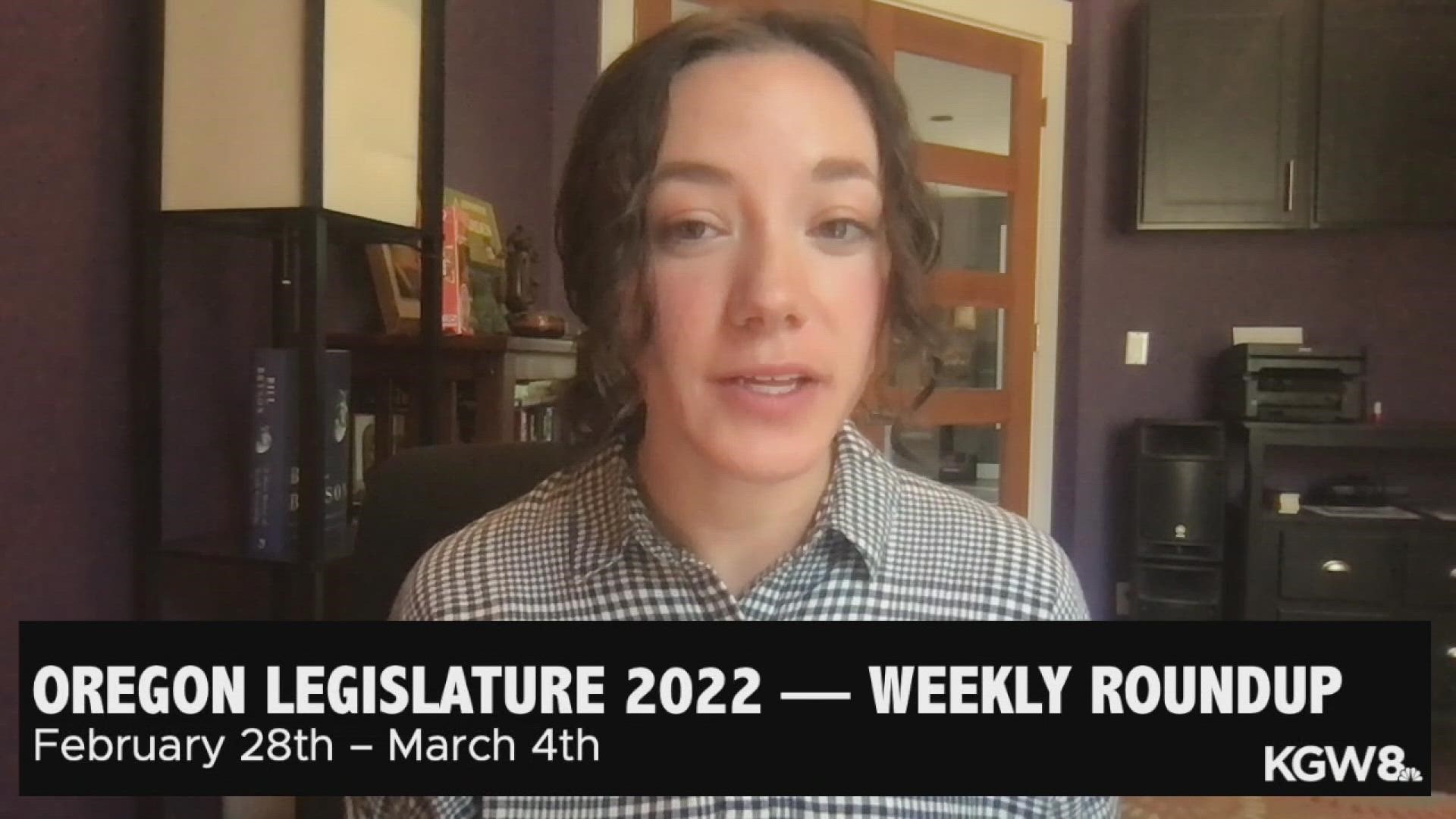SALEM, Ore. — Lawmakers gaveled out the 2022 legislative session with time to spare on Friday, allocating hundreds of millions of dollars toward housing, education, workers and more.
A contentious debate over overtime pay for farm workers finally ended with lawmakers passing the bill.
Here’s what you need to know about the short session’s final week:
Session ends early, bill giving farm workers overtime pay passes
Lawmakers adjourned the 2022 session four days early when they gaveled out at noon on Friday.
Until Thursday, most of the session droned on at snail speed, as Republicans protested legislation by requiring bills be read in full before lawmakers vote. The voice of a speed-reading robot filled both chambers for much of the session.
This was largely in protest of a bill that will give farm workers overtime pay — the session’s most controversial bill. This bill passed on Thursday, giving farm workers time and half pay for overtime for the first time in eight decades.
Shortly after this bill passed, Republicans stopped requiring bill reading and the session moved forward at full speed.
Lawmakers ultimately passed more than 100 bills and were able to work together despite partisan divides. This was in contrast to past sessions characterized by Republican walkouts and stalled bills.
“It was a surprisingly successful and productive session, given the fact that the public has demonstrated in public opinion polls a general frustration with the way government has handled the current crises,” KGW Political Analyst Len Bergstein said. “I think [lawmakers] delivered on a broad range of very important measures significantly improving people's lives.”
Lawmakers secure millions for housing, education, workers
With a surge in funding from high state tax revenues and federal money, lawmakers put hundreds of millions of dollars towards measures with one-time costs.
This includes a $400 million investment for bolstering homeless services, building affordable housing and helping low-income Oregonians purchase homes. Another $300 million will go towards a cost of living relief package, including one-time payments of $600 for low-income Oregonians and investments in childcare.
Schools will get another $300 million, addressing the staffing crisis, creating summer learning programs and giving grants to school districts that have lost students due to wildfires. Another $300 million will go toward health care needs, such as supports for behavioral health workers.
Lawmakers also allocated $200 million for Governor Kate Brown’s plan to bolster Oregon’s workforce, particularly in the healthcare, manufacturing and construction sectors. This will help connect people to job training and education programs — all with a focus on uplifting Oregon’s most marginalized groups.
Lawmakers also allocated $100 million toward climate resilience, to fight against drought and heat waves with measures such as distributing air conditioners to Oregonians in need.
$100 million will also go toward infrastructure in rural districts and many Republican priorities, like rebuilding fairgrounds across Eastern Oregon.
Other notable bills that passed include one that expands broadband access for Oregonians, one that limits the firing of superintendents, one providing protections for Elliot State Forest against logging and another that limits when police can make traffic stops.
Many bills didn’t make the cut because of tight timelines or a lack of bipartisan support. This includes one criminal justice reform: a bill that would have offered relief to people convicted by non-unanimous jury verdicts.
Oregonians will also have to wait at least another year before they can pump their own gas. Bills surrounding campaign finance reforms and lawmaker pay also failed to advance.
Lawmakers won’t seek reelection because of pay, retirement
Three Democratic lawmakers announced they wouldn’t seek re-election because they could no longer afford to serve. The Legislature pays a base salary of about $33,000. Efforts to double that pay failed to gain steam this session.
Oregon’s longest-serving lawmaker also saw his last session. Senate President Peter Courtney (D-Salem) — who has presided over the Senate for the last twenty years — will soon retire, marking the end of an era in the legislature.
This session also saw a new house speaker, Dan Rayfield (D-Corvallis), and new party leaders. Oregon will also soon have a new governor.
“You have clearly a moment in history when people who've been traditional leaders of our government are not there or they're moving on,” Bergstein said. “And then there's a new generation, and in some ways, a more diverse leadership in the Capitol, and that'll be interesting to highlight I think, and then watch how that, in fact, controls and influences public policy.”

